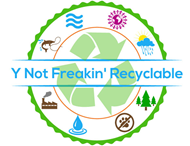Food, like many other daily human needs, has a ripple effect on a myriad of other things. How we make our food certainly factors into how we use land. Cattle ranches are one of the food related industries that has been linked to some pretty big chunks of land and the deforestation needed to facilitate their work. Meat alternative companies are starting to become more visible in the fast food industries that heavily rely on big cattle ranches for their products. Scientists are working on meat alternatives to give consumers less environmentally stressful options. But many questions still remain, let’s start with the big one. How do burgers impact the environment?
Studies of land use in South America have attributed nearly 80% of the deforestation in the Amazon region to large scale industrial cattle ranches. Our growing planet’s growing desire for beef only compounds the existing issues regarding the rainforest degradation, public health, economic, and cultural impacts of the cattle farming industry.
While all these issues continue to escalate the solution to these problems seems…beyond-impossible. That’s exactly what some food scientists are banking on actually. Food scientists at meat alternative companies like Beyond Meat and the Impossible Burger have been busy working on genetically engineered food that even loyal meat lovers seem to be enjoying, giving hope for lowering the environmental stress that comes with large scale industrial meat raising and processing.
To replicate the taste and texture of burgers these meat alternatives start with some base protein from grains, soy, or starch…and in the case of the impossible burger they then also add a meaty flavor by extracting a compound called leghemoglobin produced by a modified yeast that mimics the actual blood proteins in real meat. These plant based, lab grown burgers not only claim to taste like the real deal, but they’re also touted as requiring about 75% less water and 95% less land to produce. Bonus points, this production process also outputs nearly 87% less heat-trapping gases than traditional meat – which is good, since heat-trapping gases are the primary reason climate change is happening in the present day.
So, how’s the alternative meat racket going? Pretty well actually, especially for “flexiterians,” or folks looking to go the veggie route in meals here and there. Several chain restaurants including KFC, Little Caesars, Carls Jr, and White Castle are all starting to offer meat alternative options on their menus nationwide. Burger King even reported an 18% increase in foot traffic at locations which advertised their Impossible Whopper.
Reducing the environmental footprint while providing food is the ultimate goal here. Scientists hope these alternative options will get fans of a healthy planet and a good burger to…meat…in the middle.
source
 Pollution Climate Change Holocene Deforestation Population Acidification Y Not Freakin' Recyclable
Pollution Climate Change Holocene Deforestation Population Acidification Y Not Freakin' Recyclable



